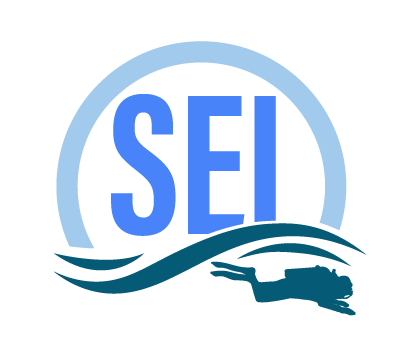Course List
Select the course you would like more information about.
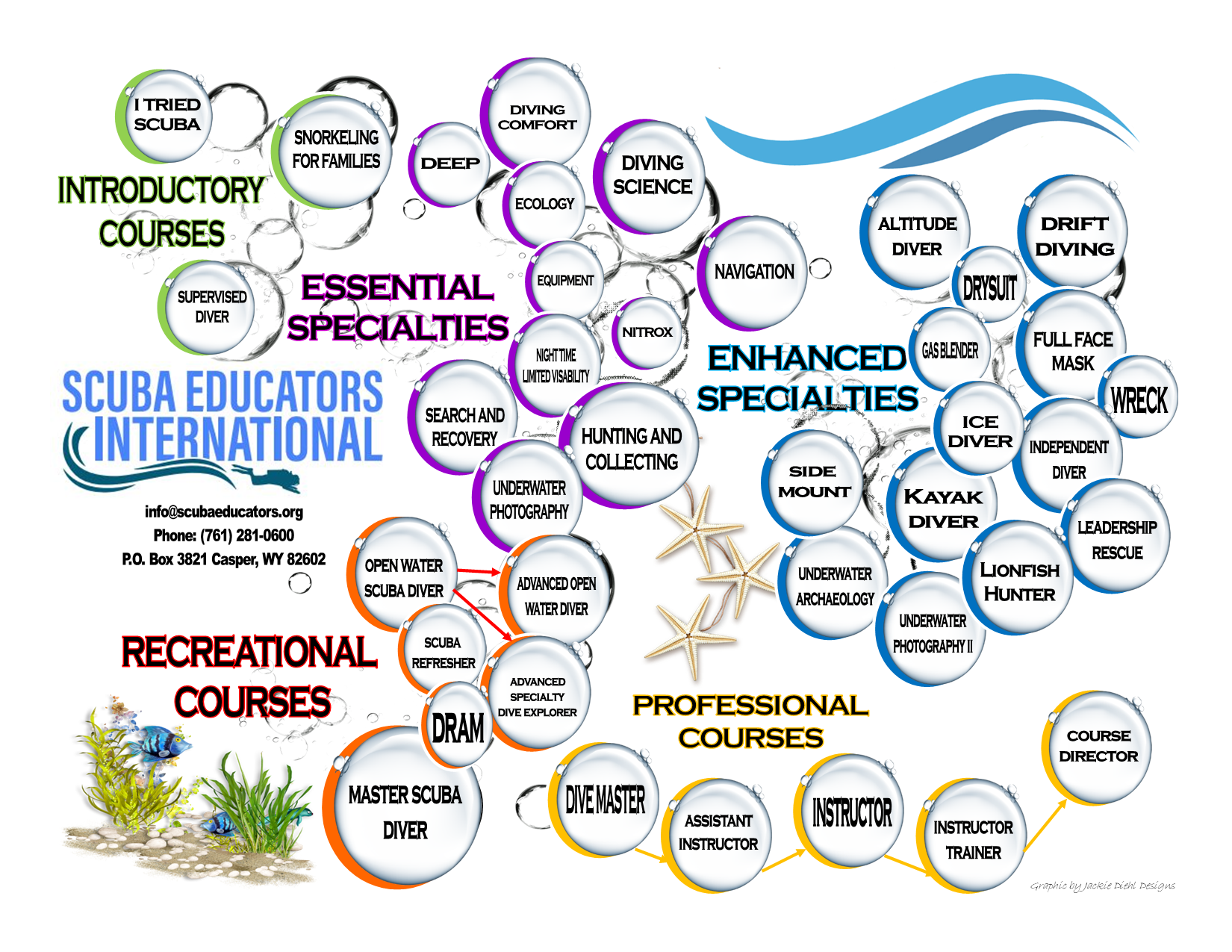
I TRIED SCUBA
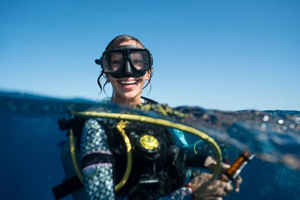
A Try Scuba course is an introductory experience that allows individuals to safely explore scuba diving under the supervision of a certified instructor, often in a pool or shallow water.
SUPERVISED DIVER
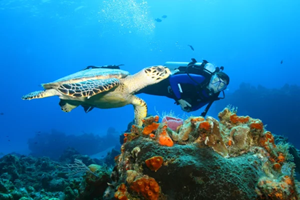
A supervised scuba diver certification is an entry-level scuba diving qualification that allows individuals to dive under the direct supervision of a certified dive professional, typically requiring basic training in dive safety, equipment use, and underwater skills.
This course requires an Instructor invite.
SNORKELING FOR FAMILIES
This course is a guided, beginner-friendly program designed to teach families, including children, the basics of snorkeling, focusing on safety, equipment use, and exploring marine environments together.
OPEN WATER SCUBA DIVER
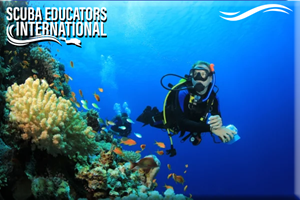
An Open Water Scuba Diver certification is an entry-level, independent scuba diving qualification that allows individuals to dive to a maximum depth of 18 meters/60 feet without professional supervision, after completing training in dive theory, confined water skills, and open water dives.
This course requires an Instructor invite.
NITROX
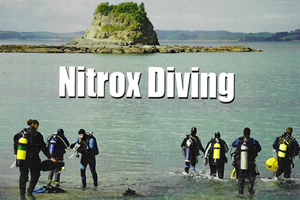
A Nitrox scuba diver certification trains divers to use enriched air nitrox, a gas blend with higher oxygen content than standard air, allowing for extended bottom times and reduced nitrogen absorption, after completing specialized training in its safe use and handling.
This course requires an Instructor invite.
ADVANCED OPEN WATER DIVER
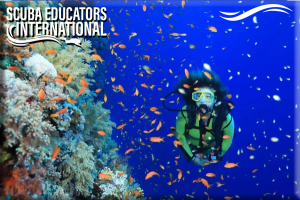
An Advanced scuba diver certification is a qualification that builds on the Open Water certification, allowing divers to explore deeper depths up to 30 meters/100 feet and engage in specialized activities like night diving or underwater navigation, after completing additional training and adventure dives.
This course requires an Instructor invite.
DIVE RESCUE ACCIDENT MANAGEMENT

A Dive Rescue Accident Management scuba diver certification trains divers in advanced techniques for recognizing, preventing, and responding to diving emergencies, including rescue procedures, accident management, and providing first aid, to enhance safety for themselves and others.
This course requires an Instructor invite.
NAVIGATION
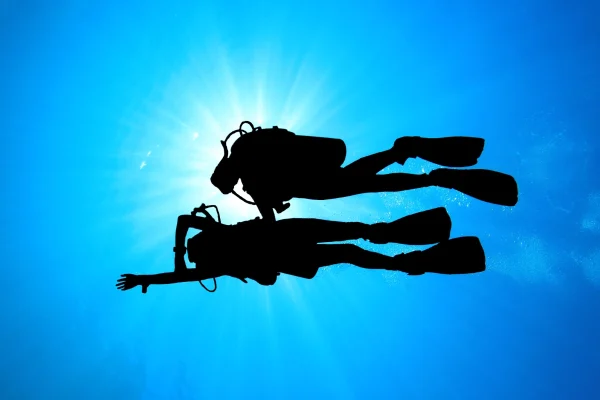
An Underwater Navigation scuba diver certification trains divers in advanced techniques for using a compass, natural landmarks, and other tools to accurately navigate underwater, enhancing their ability to plan and execute dives with precision.
This course requires an Instructor invite.
DEEP DIVER
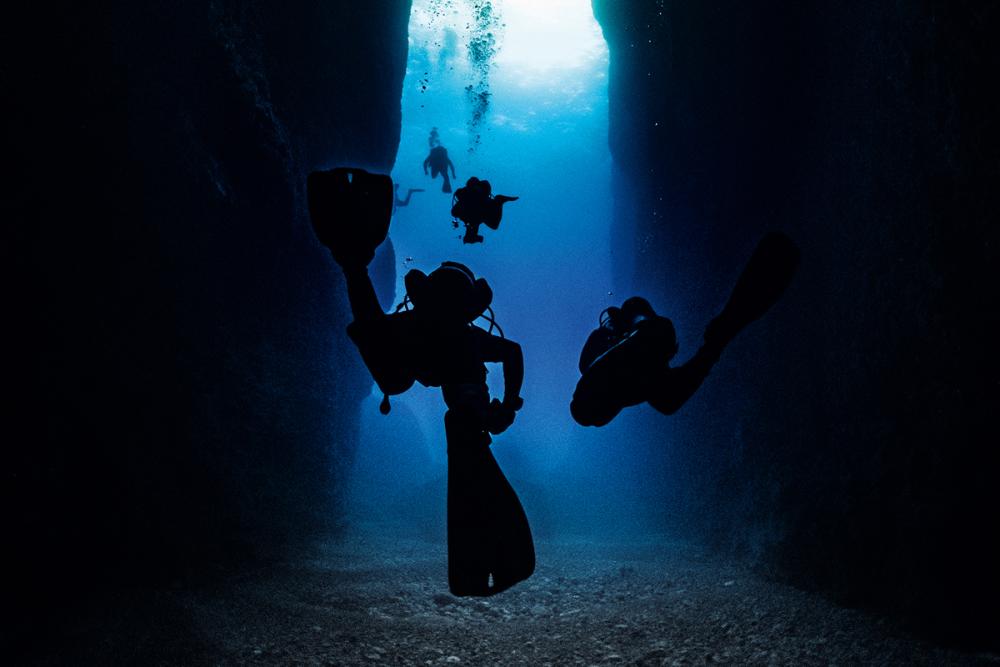
A Deep scuba diver certification trains divers to safely plan and conduct dives to depths between 18 and 40 meters/60 and 130 feet, focusing on managing risks like nitrogen narcosis, decompression, and equipment considerations specific to deeper environments.
This course requires an Instructor invite.
ECOLOGY
An Ecology scuba diver certification educates divers on marine ecosystems, conservation principles, and sustainable diving practices to promote environmental awareness and protect underwater habitats during dives.
EQUIPMENT
An Equipment scuba diver certification trains divers in the proper use, maintenance, and troubleshooting of scuba diving gear, ensuring safe and efficient operation of equipment like regulators, BCDs, and dive computers during dives.
NIGHT / LIMITED VISABILITY
A Night/Limited Visibility scuba diver certification trains divers to safely plan and conduct dives in low-light or low-visibility conditions, such as at night or in murky waters, using specialized techniques, lighting equipment, and navigation skills.
SEARCH and RECOVERY
A Search and Recovery scuba diver certification trains divers in techniques for locating and retrieving lost objects underwater, using specialized search patterns, lift bags, and equipment handling skills to conduct safe and effective recovery operations.
UNDER WATER PHOTO- GRAPHY
An Underwater Photography scuba diver certification trains divers in the techniques and equipment needed to capture high-quality images underwater, focusing on camera operation, lighting, composition, and buoyancy control to photograph marine life and environments safely and effectively.
HUNTING and COLLECTING
A Hunting and Collecting scuba diver certification trains divers in the safe and sustainable practices of hunting marine life or collecting specimens underwater, focusing on local regulations, environmental impact, and proper techniques for activities like spearfishing or gathering.
DIVING SCIENCE
A Diving Science scuba diver certification educates divers on the scientific principles underlying scuba diving, such as physics, physiology, and marine biology, to enhance their understanding of how diving affects the body and the underwater environment.
Scuba Educators International
SCUBA REFRESHER
A Scuba Refresher course is a program designed to review and reinforce scuba diving skills, safety protocols, and equipment use for certified divers who have been inactive, ensuring they are prepared to dive safely again.
MASTER SCUBA DIVER
A Master Scuba Diver certification is the highest level recreational scuba diving qualification recognizing divers who have completed multiple specialty certifications, such as Deep, Navigation, or Rescue, Science, Physics and logged significant dive experience, demonstrating a high level of skill and expertise.
ADVANCED SPECIALTY EXPLORER
An Advanced Specialty Explorer scuba diver certification is a qualification that recognizes divers who have completed a series of advanced specialty courses, such as Deep, Navigation, or Night Diving, building on their Open Water and Advanced Open Water training to enhance their skills and versatility in various diving environments.
DIVEMASTER
A Divemaster scuba diver certification is a professional-level qualification that trains divers to lead and supervise recreational scuba diving activities, assist with training, and manage dive operations, requiring extensive experience, advanced skills, and knowledge of dive safety and logistics.
ASSISTANT INSTRUCTOR
An Assistant Instructor scuba diver certification trains experienced divers to assist certified instructors in teaching scuba diving courses, conduct certain training activities under supervision, and develop skills in dive education and leadership, serving as a stepping stone to becoming a full instructor.
INSTRUCTOR
An Instructor scuba diver certification qualifies divers to independently teach and certify students in various scuba diving courses, conduct training dives, and promote dive safety and education, requiring extensive experience, advanced skills.
INSTRUCTOR TRAINER
An Instructor Trainer is a designation for qualified experienced instructors to train new scuba diving instructors, conducting instructor development courses and evaluations to ensure high standards in dive education and safety.
COURSE DIRECTOR
A Course Director is an elite designation that authorizes highly experienced instructors to lead and oversee Instructor Development Courses (IDCs), training and evaluating candidates to become certified scuba diving instructors while ensuring adherence to professional standards and safety protocols.
Altitude Diver
The altitude scuba diver course is a specialty training program that teaches certified divers the essential knowledge, procedures, and dive planning adjustments required for safe scuba diving at high elevations—typically starting at 300 meters (1,000 feet) above sea level—where lower atmospheric pressure affects buoyancy, decompression limits, and equipment performance.
Drift DIving
The Drift Diver course is a specialty scuba diving certification that teaches experienced divers the skills, techniques, procedures, and safety considerations for conducting dives in currents, including buoyancy control, navigation, buddy communication, and the use of specialized equipment like surface markers, to effortlessly glide along with ocean or river flows.
Drysuit
The Drysuit Diving course is a specialty scuba certification program offered for certified divers to learn the knowledge, skills, and techniques for selecting, using, and maintaining dry suits, including buoyancy control, thermal protection in cold water, and safe diving procedures through classroom sessions, confined water training, and open water dives.
Full Face Mask
The Full Face Mask course is a specialized training program for certified divers that covers the safe use, advantages, disadvantages, and practical skills of diving with full face masks, including enhanced communication and comfort in various underwater conditions.
Gas Blender
The Gas Blender course is a specialized training program that teaches participants the safe techniques, equipment handling, and procedures for blending enriched air nitrox, emphasizing oxygen safety and compatibility for diving applications.
Wreck
A SCUBA Wreck course is a specialized training program for certified divers that teaches the skills, knowledge, and techniques for safely exploring, navigating, and potentially briefly penetrating underwater wrecks while recognizing hazards and preparing for dives
Ice Diver
The Ice Diver course is a specialized training program for certified divers that focuses on the knowledge, skills, and procedures for safely planning, executing, and managing ice dives, including hazard awareness, site preparation, equipment handling, emergency protocols, and the roles of support teams in cold underwater environments.
Side Mount
The Side Mount course is a specialized training program for certified divers that teaches the skills, knowledge, equipment configuration, and techniques for safely diving with cylinders mounted alongside the body, offering enhanced flexibility, comfort, streamlining, and accessibility in restricted underwater environments like wrecks or caves.
Kayak Diver
The Kayak Diver course is a specialized training program for certified divers that teaches the skills, techniques, and safety procedures for paddling to dive sites using a kayak, managing gear storage and tethering, handling surf entries and exits, and accessing remote or challenging underwater locations efficiently while minimizing fatigue and risks.
Independent Diver
The Independent Diver course is a specialized training program for certified divers that teaches the skills, knowledge, equipment handling, and safety procedures necessary to confidently and responsibly dive solo without a buddy, emphasizing dive planning, hazard mitigation, self-reliance, and accident prevention.
Underwater Archaeology
The Underwater Archaeology course is a specialized training program for certified divers that teaches the skills, knowledge, techniques, and safety procedures for surveying, documenting, excavating, and preserving underwater archaeological sites and artifacts using SCUBA equipment, often including both theoretical instruction and practical dives in pools or open water.
Lionfish Hunter
The Lionfish Hunter course is a specialized training program for certified divers that teaches the knowledge, skills, and techniques for safely identifying, locating, hunting, capturing, euthanizing, and managing invasive lionfish to control their populations and protect marine ecosystems, often including classroom instruction on their biology and ecology followed by practical dives.
Leadership Rescue
The Leadership Rescue course is a specialized workshop for certified dive leaders, including divemasters, assistant instructors, and instructors, that provides advanced training in state-of-the-art rescue techniques, safety protocols, emergency management, and leadership skills to enhance diver safety and response effectiveness in various scenarios
Underwater Photography II
The Underwater Photography II course is an advanced specialized training program for certified divers and snorkelers that builds on foundational skills to teach sophisticated techniques in digital underwater photography, including digital file formats, image resolution, exposure control, color management, composition principles, basic strobe and flash use, and digital workflow processes, through knowledge development, practical open water dives, and hands-on workshops.
Diving Comfort
The Diving Comfort course is a specialized training program for certified divers that teaches techniques and strategies to enhance physical and emotional comfort underwater, covering buoyancy control, aquatic skills, equipment choices and streamlining, thermal protection options, breathing methods, buddy selection, and resolving common irritations through classroom instruction and open water dives.
